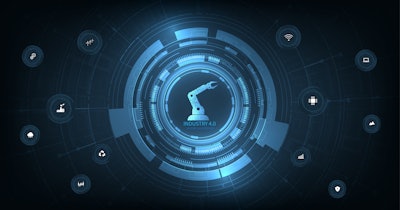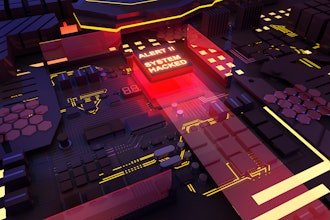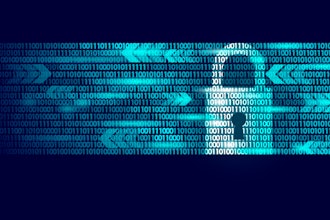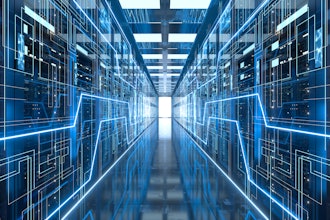
Artificial Intelligence (AI) is rapidly transforming the field of cybersecurity, offering new ways to protect digital assets and counter evolving threats. Here are seven key ways AI is impacting cybersecurity.
- Advanced Threat Detection. AI algorithms excel in detecting unusual patterns, which enables early identification of potential cyber threats that can include malware and sophisticated phishing attacks. AI algorithms can analyze vast amounts of data, including network traffic, to spot unusual patterns that may indicate a security breach. This capability allows for the early detection of sophisticated cyber threats, including zero-day attacks and advanced persistent threats (APTs), that traditional security measures might miss. AI's continuous learning ability means that these systems become more effective over time, adapting to new and evolving threats. This proactive approach to threat detection is crucial in today's rapidly changing cybersecurity landscape.
- Automated Response to Incidents. AI systems can automatically respond to security incidents, significantly reducing response times and mitigating damage. These capabilities significantly enhance your organization's ability to respond to and manage cybersecurity threats. AI's integration into incident response is a game-changer, providing robust, swift, and intelligent defenses against cyber-attacks. This is being done in several important ways:
- Speed: AI dramatically speeds up the response to security incidents, identifying and reacting to threats much faster than humanly possible.
- Efficiency: By automating responses, AI eliminates the lag in human decision-making, leading to more efficient handling of incidents.
- Accuracy: AI's ability to analyze vast amounts of data ensures that responses are based on comprehensive information, reducing the likelihood of errors.
- Adaptive Responses: AI systems can learn from past incidents, continuously improving and adapting their response strategies.
- Proactive Measures: AI doesn't just react; it can predict and prevent incidents before they occur.
- Predictive Risk Analysis. Through predictive analytics, AI can forecast potential security breaches, helping organizations to proactively strengthen their defenses through its ability to process vast amounts of data and identify patterns that might be indicative of future security threats. By utilizing machine learning algorithms, AI systems can anticipate potential vulnerabilities and security breaches, allowing your organization to proactively strengthen their defenses. This predictive capability is crucial in the evolving landscape of cybersecurity, where staying ahead of potential threats is essential for maintaining robust security measures.
- Enhanced Network Security. AI-powered tools are used to monitor network traffic, identify anomalies, and ensure network security is robust and adaptive. It does this by:
- Continuous Monitoring: AI systems can monitor network traffic around the clock, identifying and responding to anomalies in real time.
- Pattern Recognition: AI excels in recognizing patterns, which helps in detecting unusual network activities that might signal a breach.
- Automated Threat Detection and Response: AI can automatically detect and respond to threats, significantly reducing the time between detection and response.
- Scalability: AI systems can handle the vast amount of data generated by large networks, something impractical for human teams.
- Adaptive Learning: AI learns from past incidents, continuously refining its monitoring and response strategies.
- Fraud Detection. In e-commerce and online transactions, AI systems play a crucial role in detecting and preventing fraudulent activities. This is accomplished by:
- Pattern Recognition: AI algorithms excel at identifying patterns and anomalies in transaction data, helping to pinpoint fraudulent activities.
- Real-Time Processing: AI can analyze transactions in real-time, offering immediate fraud detection and prevention.
- Machine Learning: AI systems learn from historical data, continually improving their accuracy in detecting fraud.
- Behavioral Analysis: AI examines user behavior to identify unusual actions that may indicate fraud.
- User Behavior Analytics. AI analyzes user behaviors to identify potential insider threats or compromised accounts. By transforming User Behavior Analytics (UBA) in cybersecurity, AI is able to leverage advanced machine learning algorithms to analyze user activities and detect anomalies. This analysis helps in identifying potential security threats, such as compromised accounts or insider threats, by flagging behaviors that deviate from established patterns. The continuous learning capability of AI allows these systems to adapt to new user behavior trends, enhancing their accuracy over time. This makes AI an invaluable tool in providing a more nuanced and dynamic approach to monitoring and securing networks against user-related risks.
- Continuous Learning and Adaptation. AI systems continually learn from new data, helping cybersecurity measures to evolve in line with emerging threats by utilizing machine learning algorithms. These algorithms enable systems to learn from new data, recognize emerging patterns, and adapt to evolving cyber threats. This continuous learning process enhances the effectiveness of AI systems over time, allowing them to respond more accurately to a wide range of cybersecurity challenges. AI's adaptability ensures that cybersecurity measures remain robust and relevant, even as the nature of cyber threats changes. This aspect of AI is crucial in maintaining long-term, effective cybersecurity defenses.
How This Affects Your Organization
If you have not leveraged AI in your cyber security response, you may not be creating the securest environment possible. Your security and solutions need to be a combination of human engagement and AI support. Talk with your cyber security team and see what AI has been implemented into your defense; if you don’t have a cyber security team, we suggest reaching out to a cybersecurity solutions company like On Technology Partners for help.
Though AI is a game-changer in cybersecurity, it still requires people as part of the process. By offering advanced, efficient, and proactive solutions to safeguard against complex and evolving cyber threats. Combined with human support we can respond faster and more accurately to cyber risks.






















